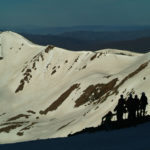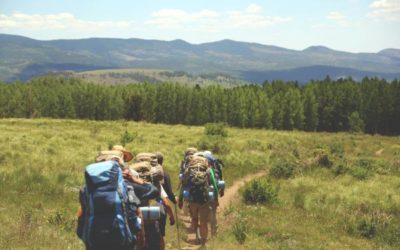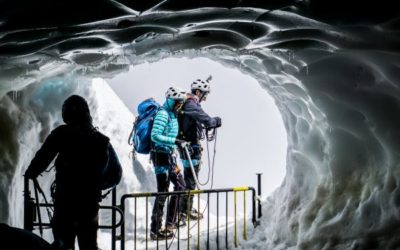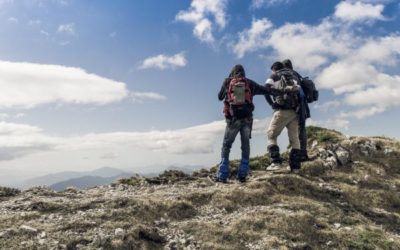by Ashley Denton
 Is there any Connection between Effective Leadership and having a Variety of Field Experiences?
Is there any Connection between Effective Leadership and having a Variety of Field Experiences?
I recently heard that a college that offers an outdoor leadership degree is reviewing their curriculum. Ithaca College is having an important yet controversial debate whether they can offer their outdoor adventure leadership students a variety of field experiences in other climates and terrain or if they will only be able to offer training in the Adirondacks, near the college’s location. This is a hugely important topic that really addresses a larger question: Is experiential learning usually a better method of apprenticeship or not?
Classrooms Have Limited Usefulness
I sometimes teach outdoor leadership soft skills in a classroom setting at Denver Seminary, and it always feels a bit odd to model how to lead others in the wilderness when you are sitting in a classroom. I’ll admit that outdoor educators are a bit biased in that anyone who experiments with experiential learning has a natural aversion to indoor classrooms. This is because we have seen the exponential impact that the outdoor environment has for enhancing transformation. Yet outdoor leadership degree programs are preparing leaders for a unique career that requires adequate field experience commensurate with training in adventure theory and practice. Since I am passionate about the field of outdoor leadership I thought I’d humbly offer a couple of comments to this healthy debate.
Immersion
I believe the best outdoor leaders who have the best long-term trajectory in the field are those with extensive field experience in a variety of contexts. That is why I think some sort of immersion semester that offers experiences in different terrains, climates or seasons is a good idea. The same is true for organizations or churches that train leaders for outdoor ministry: guide training that places leaders in a variety of scenarios will produce more competent guides for your program.
5 Essentials of Wilderness Leadership
I recently posted a blog on “5 Essentials of Wilderness Leadership”. It addresses the reality that outdoor leaders will be more effective if they lead toward certain outcomes. And developing competency in wilderness leadership requires a significant variety of experiences in those wilderness classrooms (i.e. in the field) where transformation is going to occur. Theory only gets us so far–hopefully out the door.
Variety Enhances Decision-Making Ability
Shayne Galloway conducted an important study on this issue. He presents a practical model for training outdoor leaders to help them mature in their in decision-making ability. Galloway, reports the results of a study conducted with a host of outdoor leadership experts. He suggests that judgment and decision-making ability may be developed in the outdoors via the following methods (notice the emphasis on the importance of having leadership experience in a “variety” of environments, conditions, etc.):
Practical Ways to Train Outdoor Leadership Students to Develop Mature Decision-Making Skills
- Experience in a variety of environments and seasons with varying conditions of intensity.
- Realistic opportunities for students to lead peers in stressed and non-stressed situations.
- Experience with participants with varying abilities and disabilities.
- Leader explanation and discussion with students and/or practitioners about their own decision-making process in actual field experience.
- Experience under a variety of leaders who serve as role models and mentors.
- Opportunities for processing student-led experiences with an emphasis on discussions between student leaders and their peers regarding their own decision-making processes. [1]
I commend this particular university and their students for debating this controversial issue and I hope the result will be an even better curriculum that will prepare outdoor leaders for a long-term career in this field. The debate has already benefited me by forcing me to articulate, Why Outdoor Leadership Degree Programs Must Emphasize Field Experience in a Variety of Terrains and Climates.
About the author of this post: Residing in Fort Collins, CO, Dr. Ashley Denton is the director of Wilderness Ministry Institute, and the author of Christian Outdoor Leadership: Theology, Theory, and Practice. He is also a professor of outdoor leadership at Denver Seminary.
End Note:
[1] Galloway, Shayne. “Theoretical Cognitive Differences in Expert and Novice Outdoor Leader Decision Making: Implications for Training and Development.” Journal of Adventure Education and Outdoor Learning 2, no. 1 (2002): 19-28.




